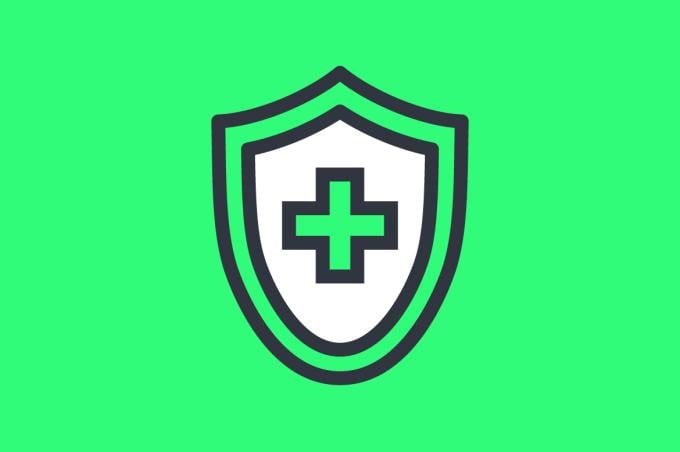Social media platforms are used by nearly everyone. So, experts say, when it comes to protecting children from their damaging effects, parents and pediatricians should tackle the topic early and often.
Melissa J. Garretson, MD, a pediatric emergency physician based in Fort Worth, Texas, said that social media’s ubiquity demands the attention of both physicians and parents. She noted that 95% of 17-year-olds in the U.S. use social media every day.
“If that doesn't blow your mind, I don't know what does, because there is nothing else that 95% of adolescents do,” said Dr. Garretson, a member of the AMA Board of Trustees.
Dr. Garretson joined family and sports medicine physician Alex McDonald, MD, for a live “PermanenteDocs Chat” about navigating social media use among children and teens. The Permanente Medical Group is a member of the AMA Health System Program, which provides enterprise solutions to equip leadership, physicians and care teams with resources to help drive the future of medicine.
3 hours a day is recipe for trouble
Physicians are starting to vigorously tackle social media and its effects on young children. Last year, U.S. Surgeon General Vivek Murthy, MD, released an advisory on the effects social media use has on youth mental health.
“The most common question parents ask me is, ‘Is social media safe for my kids?’ The answer is that we don't have enough evidence to say it's safe, and in fact, there is growing evidence that social media use is associated with harm to young people’s mental health,” Dr. Murthy said in a statement, which noted that research shows “adolescents who spend more than three hours per day on social media face double the risk of experiencing poor mental health outcomes, such as symptoms of depression and anxiety.”
The AMA also understands the impact that social media has made on the nation’s physical and mental health, particularly among children, though it is likely true that other factors are contributing to this major national health challenge.
“With near universal social media use by America’s young people, these apps and sites introduce profound risk and mental health harms in ways we are only now beginning to fully understand,” AMA President Jack Resneck Jr., MD, said in a statement after the advisory.
Dr. Garretson said that physicians in the emergency department are seeing an increase in anxiety and depression, cutting and suicide attempts among children and teenagers. And research going back to 2007 has shown a rise in youth and young adult suicide rates of more than 50%.
“Initially, we all kind of blamed it on COVID. But when you actually look at the data, it actually started back about 2010, which in retrospect is about the time all the social media platforms really got going and really became very robust,” she said.
Dr. Garretson said researchers have yet to fully explore how social media affects the brain, but correlations have been documented between its use and increased risk of mental health issues such as depression and anxiety.
There also is research emerging on social media’s effects on sleep deprivation, which can be caused by people staying up late messaging or scrolling.
“We all know that sleep deprivation leads to poor choices and mental instability in terms of how you respond in stressful situations,” said Dr. Garretson.
According to an AMA Council on Science and Public Health report introduced at the 2024 AMA Interim Meeting earlier this month, further research is needed as the associations between social media and adolescent mental health are small and may be explained by bidirectional interactions, methodological weaknesses, and individual rather than population differences.
In adopting the council report’s recommendations, the AMA House of Delegates adopted new policy urging physicians to:
- Educate themselves about social media.
- Be prepared to counsel patients or their guardians about the potential risks and harms of social media.
- Consider expanding clinical interviews to inquire about social media use.
The new policy also supports:
- Education of clinicians, educators, and the public on digital media literacy and the health effects of social media.
- Legislative, regulatory and associated initiatives that, at a minimum, provide youth with strong data privacy protections, require platforms to be designed to align with child development, and provide transparency into the potential harms posed by platforms to young people and any steps taken to mitigate those harms.
The delegates also voted to:
- Encourage further clinical, epidemiological and interdisciplinary research on the impact of social media on health.
- Recognize that the relative risks and benefits of social media may depend on individual differences (e.g., social media engagement, preexisting traits and environment.
Per the newly adopted policy, the AMA “will collaborate with professional societies, industry and other stakeholders to improve social media platform privacy protections, transparency (e.g., algorithmic, data, and process), data-sharing processes, and systems for accountability and redress in response to online harassment.”
The House of Delegates also modified existing policy calling on schools provide safe and effective, evidence-based educational programs so that all students:
- Can learn to identify and mitigate the onset of mental health sequelae of social media and social networking usage.
- Develop skills in digital literacy to serve as an individual protective foundation for interaction with various types of digital media, including social media.
Under the modified policy, the AMA also will advocate that media and social network services address and develop safeguards tailored to youth users. That should include:
- Ensuring robust protections for youth online privacy.
- Providing effective tools to manage screen-time content and access, considering special circumstances
- for certain youth populations (such as LGBTQ+ youth and youth with disabilities).
- Promoting the development and dissemination of age-appropriate digital literacy training.
Read about the other highlights from the 2024 AMA Interim Meeting.
Avoid social media rabbit hole
Back in the “PermanenteDocs Chat,” host Dr. McDonald said that it’s important to set guidelines from the get-go with smartphones and social media, which he said is “much better than trying to crawl it back afterwards.” Adults also should model responsible social media usage.
Additionally, Dr. McDonald said, parents and physicians need to understand that social media can mimic addictive substances.
“When you go down that rabbit hole and someone likes your post, a little blip of dopamine goes off in your brain, and there are a lot of those same neurochemical pathways regarding social media as with use disorder and drug and alcohol addiction,” he said.
Parents also should foster communication and explain to their children that they can help them if they make a mistake on social media, Dr. Garretson noted. And pediatricians should talk about these topics with patients and their parents.
“When we have well-child checks with people, we need to include that in our guidance to them and it needs to start pretty early since 40% of 8-year-olds and 8- to 12-year-olds are using social media,” she said.
Dive deeper:
- 4 ways physicians can boost kids’ mental health
- How physicians can help parents address kids’ social media use
- Physicians demand action on suicide crisis in teens, young adults
Social media has a time and place
But it’s not all bad news. Drs. Garretson and McDonald said there are benefits from social media—and that parents and pediatricians should encourage children to use the platforms to help their social and emotional lives.
“Surrounding yourself in a friend group, in your online presence, with people who you are friends with and are supportive of you can be a nice way to make those connections when you can't see each other, when you're separated by illness or other things,” Dr. Garretson said.
Social media can be particularly helpful to LGBTQ+ children, to kids with special interests or abilities or those with chronic conditions, she said. It can help them find communities, share commonalities and lean on others for support.
“There are tremendous positive opportunities. We, as a society and as parents, need to make sure our kids are engaging in those positive experiences and able to identify when something is negative,” Dr. Garretson said. “It isn't something you're going to naturally know. We have to teach our kids what those things are.”




